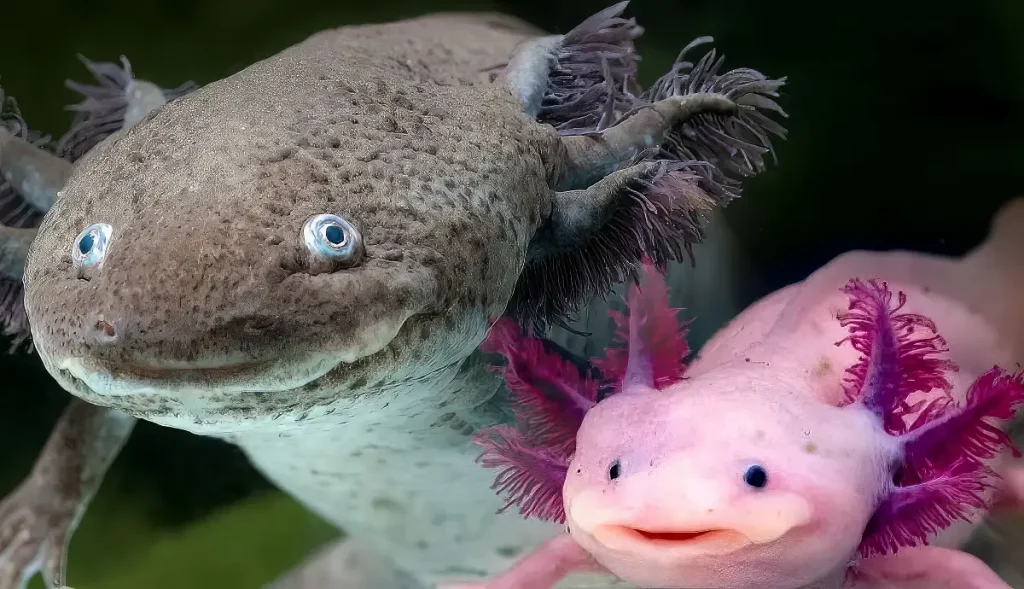Can axolotls see in the dark? The axolotls often leave its enthusiasts curious about its sensory abilities. One of the popular questions that pops up is: Can axolotls see in the dark? Here, we will get to know more about that.

Nocturnal by Nature
Naturally, axolotls are nocturnal creatures, this means that they are very active at night. Their natural habitat which is mostly made up of dark, murky waters and subterranean caves have low-light conditions and being able to survive in such conditions is crucial.
This nocturnal behavior of theirs is an adaptation to avoid predators and to hunt for prey efficiently.
Specialized Eyesight
The axolotls have eyes that gives them the ability to see in a low-light environments. Their eyes are made up of rod cells that are known as photoreceptor which specializes in low-light vision.
The rod cells are sensitive to light and it gives the axolotls the ability to detect even a minimal level of light.
READ ALSO:
- Are Axolotls Good Or Bad?
- Are Axolotls Friendly Pets?
- How Long Do Axolotls Live?
- Do Axolotls Still Live?
Pupil Dilation
Like some other animals that are most active at night, axolotls can dilate their pupils so as to allow more light into their eyes.
This adaptation helps to increase their vision in low-light conditions, which provides them with better chances of spotting potential threats or prey in the dark.
Hunting Strategies
Its nocturnal nature influences its strategies in hunting. While in the wild, they feed primarily on small aquatic invertebrates and insects.
Their enhanced low-light vision helps them move around their environments to find preys and hunt for food at night.
Captivity Considerations
When in captivity, they adjust to the activity pattern of the light provided in the aquarium.
A natural day-night cycle can be replicated by providing dimmer light during the day and a darker ambience at night. This helps mimics its natural environment, thereby providing overall wellbeing.

